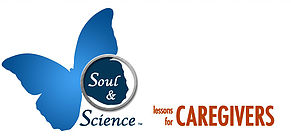WEB MATERIALS

Web Articles
Colosimo, Ken A.; Pos, Alberta E. A Rational Model of Expressed Therapeutic Presence. Journal of Psychotherapy Integration, Vol 25(2), Jun 2015, 100-114.http://dx.doi.org/10.1037/a0038879 (PDF Available Free for Healthcare Professionals)
Shari M. Geller. Therapeutic Presence and the Naturopathic Doctor: Bringing One’s Whole Self into the Encounter with the Patient
Shari M. Geller, Stephen W. Porges. Therapeutic Presence: Neurophysiological Mechanisms Mediating Feeling Safe in Therapeutic Relationships. Journal of Psychotherapy Integration 2014, Vol. 24, No. 3, 178 –192
Alessandro Antonietti. Chapter 15 Why Does Mental Visualization Facilitate Problem-Solving? Advances in Psychology. Volume 80, 1991, Pages 211-227 (for purchase)
Chris P. Neck and Charles C. Manz. Thought Self-Leadership: The Influence of Self-Talk and Mental Imagery on Performance. Journal of Organizational Behavior, VOL. 13, 681-699 (1992)
Emily A. Holmes and Andrew Mathews. Mental Imagery and Emotion: A Special Relationship? Emotion. 2005, Vol. 5, No. 4, 489 – 497
Veda Andrus, EdD, MSN, RN, HN-BC. Therapeutic Presence by Truly Being Present with Patients, Nurses Bring Comfort and Care By March 30, 2010. Posted on: March 29, 2010
Tori Rodriguez. Mental Imagery May Hasten Recovery after Surgery. Scientific American May 1, 2013
Emily A. Holmes and Andrew. Mathews Mental imagery in emotion and emotional disorders. Clinical psychology review. April 2010 (no link allowed – available for download for healthcare professionals) https://www.researchgate.net/publication/41190004_Mental_imagery_in_emotion_and_emotional_disorders
AJ LeVan. Seeing Is Believing: The Power of Visualization Psychology Today Dec 3 2009
3 Easy Visualization Techniques. Real Simple
Websites
Dr. Shari Geller
Introduction to Dr. Shari Geller’s website: “Here you will find an infusion of tools, services, and publications to help you optimize your potential. Today, we need a combination of evidenced based practices to enhance well-being. With over twenty years of practice and research in the field of mindfulness, clinical psychology, and music, I have discovered innovative ways of weaving together different approaches to cultivating presence.
I am passionate about the potential of each and every person to create a healthy and joyful life and to engage in meaningful relationships. My hope is that the information on this site benefits therapists, clients, and anyone interested in exploring the healing power of being fully in the moment – with and for each other.”
Mindful
Mindful is a site created by the Foundation for a Mindful Society, an independent non-profit located in Halifax, Nova Scotia. Mindful seeks to become the voice of the fast-emerging mindfulness movement. Its mission is to inspire, guide, and connect all those who want to live with awareness and compassion, to enjoy the proven benefits of mindfulness practices, and to create a more mindful and caring society. Mindful supports the growth of mindful practices in all aspects of secular modern life, and is not affiliated with any particular spiritual or sectarian approach.
UMASS Medical School Center for Mindfulness in Medicine, Health Care, and Society
This website is a product of the University of Massachusetts Center for Mindfulness. Its mission statement is: to explore, understand, articulate and further mindfulness in the lives of individuals, organizations and communities through clinical care, rigorous scientific research, professional training, and informed public discourse.
UCLA Mindful Awareness Research Center
UCLA has created this website to support The Mindful Awareness Research Center (MARC). MARC is a partner of the Norman Cousins Center for Psychoneuroimmunology within the Jane and Terry Semel Institute for Neuroscience and Human Behavior at UCLA. MARC’s mission is to foster mindful awareness across the lifespan through education and research to promote well-being and a more compassionate society.
Greater Good Website
The Greater Good Science Center studies the psychology, sociology, and neuroscience of well-being, and teaches skills that foster a thriving, resilient, and compassionate society.
Based at the University of California, Berkeley, the GGSC is unique in its commitment to both science and practice: Not only do we sponsor groundbreaking scientific research into social and emotional well-being, we help people apply this research to their personal and professional lives. Since 2001, we have been at the fore of a new scientific movement to explore the roots of happy and compassionate individuals, strong social bonds, and altruistic behavior—the science of a meaningful life. And we have been without peer in our award-winning efforts to translate and disseminate this science to the public.
